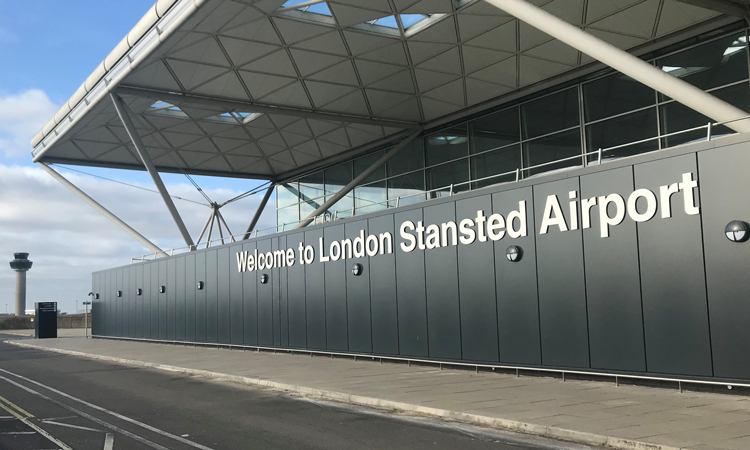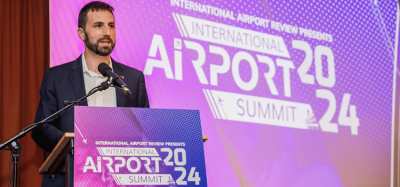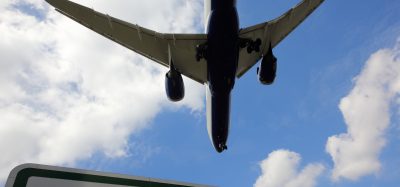Manchester Airports Group calls for path to restriction-free travel
- Like
- Digg
- Del
- Tumblr
- VKontakte
- Buffer
- Love This
- Odnoklassniki
- Meneame
- Blogger
- Amazon
- Yahoo Mail
- Gmail
- AOL
- Newsvine
- HackerNews
- Evernote
- MySpace
- Mail.ru
- Viadeo
- Line
- Comments
- Yummly
- SMS
- Viber
- Telegram
- Subscribe
- Skype
- Facebook Messenger
- Kakao
- LiveJournal
- Yammer
- Edgar
- Fintel
- Mix
- Instapaper
- Copy Link
Posted: 26 April 2021 | International Airport Review | No comments yet
After passenger numbers being down by 90 per cent across its three airports from March 2020 to March 2021, MAG has called for an urgent path to restarting international travel.


Credit: London Stansted Airport
Plotting a path to restriction-free travel is key to the full revival of the UK’s ailing aviation sector. That was the message delivered by Manchester Airports Group (MAG), as the UK’s largest airport group revealed figures showing that passenger numbers were down by 90 per cent across the first 12 months of the coronavirus pandemic.
Such a roadmap should be based on greater cooperation between the UK government and its overseas counterparts, to share information about the emergence of new COVID-19 variants of concern and eliminate the need for travellers to take expensive PCR tests upon their return.
Currently, the UK government proposes that all passengers – even those returning from the lowest risk ‘green’ destinations – will have to take a PCR test upon return so that it can gather data that will help with genomic sequencing. MAG said that this could be avoided if governments worked together on sequencing and sharing data on variants.
The testing requirement is part of the Global Travel Taskforce’s (GTT) ‘traffic light’ framework, which categorises countries as red, amber or green based on the risk associated with visiting them. Subject to final confirmation, it is set to come into play on 17 May 2021, the earliest date that the government has said that non-essential travel can resume.
Manchester Airports Group – the owner of Manchester Airport (MAN), London Stansted Airport (STN) and East Midlands Airport (EMA) – said that the framework should be improved urgently to include a fourth, restriction-free category capitalising on the success of the UK’s world-leading vaccination programme. Doing so would remove significant personal cost to passengers and inject much-needed confidence into the UK aviation sector ahead of what will be a critical summer season.
The dramatic downturn that aviation has experienced was laid bare in MAG’s annual passenger figures, which showed that, compared to March 2020, MAG served 93 per cent fewer passengers in March 2021, and that its rolling 12-month passenger total is down by 89 per cent. In March 2020, MAG served more than four million passengers, compared to March 2021, when it served 140,000 – a 97 per cent decrease.
Manchester Airport handled just 95,798 passengers in March 2021, 89.8 per cent down on the 942,900 that it handled 12 months earlier in March 2020. At Stansted, the figure was 44,259 in March 2021, compared with over 800,000 in March 2020 – a 95 per cent drop. At East Midlands Airport, the airport served just 71 passengers for the whole of March 2021, against 106,529 in 2020. In March 2019, MAG’s 12-month rolling passenger numbers stood at nearly 62 million, compared to just over six million in March 2021 – down by a total of 90 per cent.
Charlie Cornish, CEO of Manchester Airports Group, said: “The UK government is among the first to have set out proposals for a system that enables international travel to resume and should be applauded for taking the lead. After more than a year of almost total shutdown – and with so many jobs and so much economic value at stake – it’s really important that we get people moving again once it is safe to do so. We now need the government to confirm the 17 May 2021 start date as soon as possible, along with the list of countries that fall into each ‘traffic light’ category.”
Under the traffic light system, those returning from green list countries will have to take a test pre-departure and another PCR test within two days of getting back. Those returning from amber list countries are also required to self-isolate for 10 days and take an extra PCR test, while those coming back from red list countries have to book a government-approved hotel quarantine package.
Cornish added: “The price tag attached to testing will hold back the recovery and hinder the sector’s ability to power the UK’s economic revival as a whole. The requirement to complete a PCR test on return from even the safest countries adds potentially unnecessary cost and the government’s attention must now turn to finding smarter and more affordable ways to manage the risk posed by new variants of concern.”
“This should be achieved by forging ever-closer partnerships with key markets and developing transparent ways of sharing data into these variants so that they can be effectively contained. Where we can trust data from other countries, forcing people to spend money on expensive PCR tests, to obtain the very same information, would represent a colossal waste of everyone’s money,” he continued.
Cornish concluded: “COVID-19 is a global problem and requires a coordinated international response, not just in bringing the pandemic under control, but in developing solutions to enable a return to restriction-free travel between countries where there is a lower level of risk. The government should also be looking to the UK’s world-leading vaccination programme as a means to remove further barriers to travel to as many destinations as possible. Only by setting ourselves on a course back to restriction-free travel now will the aviation industry find itself on a road to full recovery, unlocking the wider-ranging economic benefits that brings.”
Related topics
Airport crisis management, COVID-19, Economy, Passenger volumes, Regulation and Legislation, Safety
Related airports
East Midlands Airport (EMA), London Stansted Airport (STN), Manchester Airport (MAN)


















